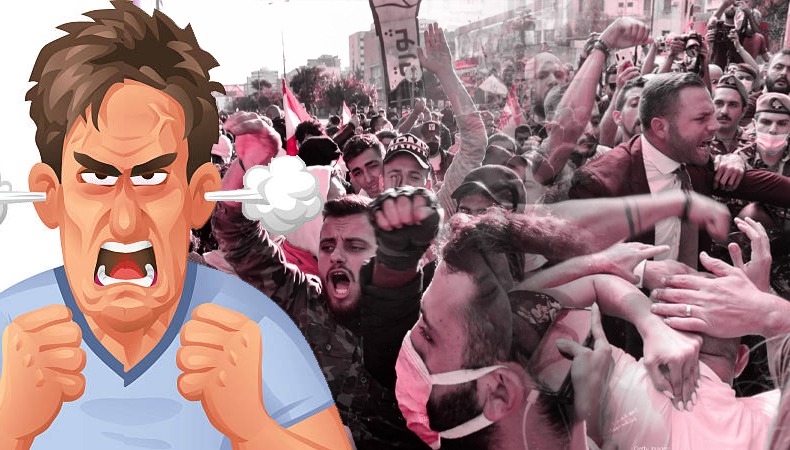Why Jordan, Iraq, and Lebanon are among the ‘angriest countries’

After a year of post-pandemic exhaustion, geopolitical unrest, and global economic uncertainty, to name just a few of the difficulties faced, many people were relieved when 2022 came to an end.
One outcome of the year’s unpredictability and upheavals is the pervasive feeling of rage running through societies, fed up with the litany of back-to-back crises, for which solutions seem to elude governments and international organisations.
There has been no exception in the Arab world. According to Gallup’s most recent annual Global Emotions Report, three Middle Eastern nations were among the angrier than the rest of the globe, mostly as a result of a toxic concoction of socioeconomic pressures and institutional inadequacies.
The COVID-19 pandemic’s lockdowns, supply-chain disruptions, and travel bans appeared to be helping the global economy recover when the war in Ukraine sent inflation spiralling, with rising food and gasoline prices significantly affecting the world’s poorest.
The last year inevitably turned out to be a time of escalating concern, frayed tempers, and violent upheaval for millions of people throughout the world when political instability, corruption, and alleged climate change are added to the mix.
Read | Around 700 ISIS operatives killed in Syria and Iraq this year, says US
Gallup’s polling discovered widespread and rising public resentment across the Middle East and North Africa, where price volatility, climatic shocks, and protracted political upheavals have been strongly felt. Development experts say regional governments should take this resentment seriously.
With a methodology based on nationally representative, probability-based samples among the adult population, aged 15 and above, collected from 122 countries, Gallup first started monitoring worldwide unhappiness in 2006.
It was discovered that stress, which is the culmination of grief, anger, concern, and physical pain, reached a record high last year, with 41% of individuals worldwide reporting having felt stressed the day before.
Additionally, these unfavourable feelings seem to be getting worse, with 2021 overtaking 2020 as the most stressful year in recent memory.
The Arab world has experienced large protests, regime changes, corruption, scandals, wars, and mass migration during the past ten years, all of which have disrupted regional agendas and internal dynamics.
According to the most recent Gallup Global Emotions Report, Lebanon had the greatest percentage of respondents (49%) who said they had experienced rage the day before.
Since 2019, Lebanon has been experiencing its greatest financial crisis ever, which has caused the value of its currency to drop by 95% and forced a large portion of the population to live below the poverty line.
In the meantime, the nation has failed to carry out crucial structural reforms to eliminate institutional corruption and lessen the suffering of its people since its parliament is impeached and unable to choose a new president.




